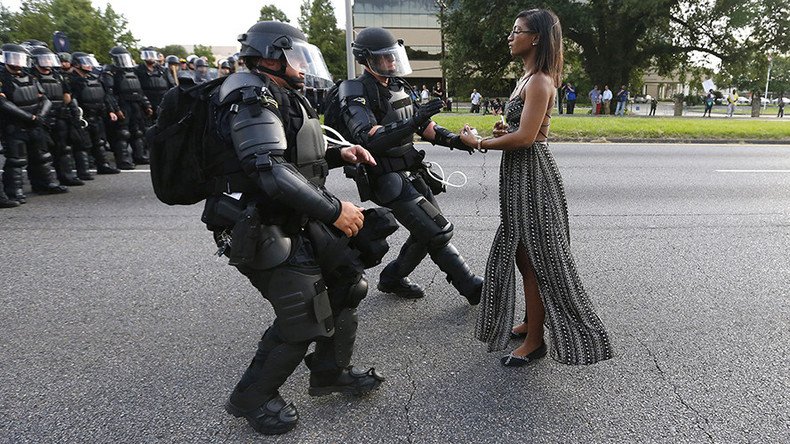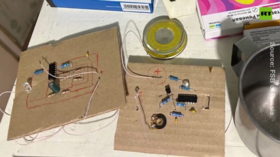Police brutality against Blacks: ‘Changes in the air thanks to videotape & social media’

Black Americans have had problems with police brutality in each generation. The difference now is the introduction of technologies that allow victims to pursue justice in a court of law, said Roland Martin, host and Managing Editor of TV One’s ‘News One Now’.
Fifty one years ago, it was legal for African-Americans to be treated as second-class citizens in the United States of America. During the Jim Crow era African-Americans were prohibited from attending the same schools as the Whites, using the same restrooms, same restaurants and from drinking out of the same water fountains as white Americans. Now in 2016, segregation is no longer legal. But since the Jim Crow era ended it seems practices have been put into place to ensure African-Americans aren't given a fair chance to succeed in the US.
RT America correspondent Ashlee Banks focuses on issues related to the black community in the United States and discusses them with experts.
RT: I want to start with the recent police killings. When it comes to police brutality, the police involved killings. I would like to know, do you think there is a correlation between the US having its first black president in office and the frequency that these killings are taking place?
Roland Martin: No, what you have now is that you have video. You always had these police killings. This is the first time really in American history you have the level of police accountability. We come to the kind of changes being forced on police departments. Police in America have always gotten the benefit of the doubt. Police in America have always been in a position where people say: “They are untouchable”. As opposed to now is a level of en forcing accountability. But you always had these shootings, the difference is you have body cameras, you have citizens who share their own video - that is the only reason for the level of conversation you have it today.
Elder CD Witherspoon, candidate for president of the NAACP’s Baltimore City branch: We have a situation where there are highlighted race relations in this country. And I think that is in part in response to the election of President Obama. We have things in relationship to race that are surfacing that we have not experienced in quite some time in this country. So, I think that President Obama's election as president of the United States is definitely causing our country to have discussions in relationship to race that we have not been forced to have at least publicly in quite some time.
Cori Bush, co-director of “The Truth Telling Project” and organizer with Ferguson Frontline: What I think is that it is just time. I think that it's finally time because the same thing could have happened, could have exploded years ago before Barack Obama came into office. That it's just finally time for us to say: “Hey, stand up and fight”. Sometimes things just have to have that catapult moment. Here we are.
RM: One thing we have to recognize is that you have had these flash points. In the ‘I have a Dream’ speech on August 28, 1963, Dr. Martin Luther King referenced police brutality in that very same speech. You then go to the assassination of Fred Hampton by cops in Chicago. And then all of a sudden you go to the 1980s and you have rappers like NWA and Iced Tea and others talking about ‘F the police’ and also talking about police brutality. And so you’ve had this in each decade. You’ve had the Rodney King beating in the 1990s. Now all of a sudden is you’re in the 2000s. The difference here is you actually have video of officers in action. That’s the game changer.
'To me, this is bigger than football': NFL player refuses to stand for US anthem as part of anti-racism protest https://t.co/7cMMtyD3KQ
— RT (@RT_com) August 28, 2016
RT: So we have video and we have social media. But despite the evidence that’s surfacing with police brutality, we see these videos all the time… but some of these officers aren’t being held accountable. Why is that?
RM: In many cases with the cops, it’s black and white; other times it’s black and black. And so how do you explain Baltimore, where there were black officers involved? How do you explain Walter Scott. A white officer killed him and a black officer comes on the scene and backs up the story of the officer who killed Walter Scott. That’s police culture. That’s blue. So how do you change that culture where literally police have been trained; it’s embedded in the police DNA where they are to protect one another. So you are dealing with that issue as well…. We’ve had more police officers held accountable for their actions in the past 5 years than you likely had in the past 25 years… Remember, before this moment they never even got investigated, as opposed to being charged.
The statements, views and opinions expressed in this column are solely those of the author and do not necessarily represent those of RT.












